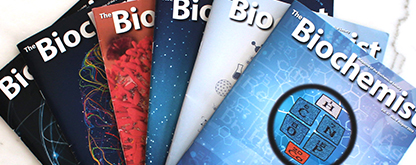
Eric Reid Fund for Methodology
This fund is available to provide modest financial support for benchwork. The emphasis is on methodology, with a preference for cellular or bioanalytical work.
The Fund was endowed by a Trust (Guildford Academic Associates) co-founded by Dr Eric Reid, an Emeritus Member. Dr Eric Reid (1922-2010) was well known in the bioanalytical community as the founder of Reid Bioanalytical Forum.
We particularly encourage applications from newly appointed PIs, early career researchers seeking independence, and researchers returning from a career break.
Examples of awards
- Developing and applying a new technique
- Checking the application of a known technique in new circumstances
- Method development by new staff before they apply to a major award-granting body
What this grant cannot fund
This grant is aimed at basic science and the development of analytical/biochemical methods. This fund is not intended for clinical therapeutics.
How much funding is available?
- £4,000 (for consumables only)
- £6,564.10 (to cover a maximum stipend of £2,564.10 to a summer vacation student working on a 6 week project (based on a 35-hour week at National Living Wage). Shorter projects are also welcomed.
Any additional funding sought for the proposed work from other sources should be mentioned in the application.
Hear from a Committee member
Members of our Reviewing Panels took part in a Biochemistry Focus webinar titled 'How to apply for Biochemical Society grants: Education, Research and Outreach'.
Hear from Dr Simon Moore, who discusses what to include in an Eric Reid Fund for Methodology application.
“We proposed to develop and implement a new approach for labelling Fab fragments covalently and with a defined stoichiometry. We successfully generated indole-based probes and showed proof of principle super-resolution imaging experiments of b-tubulin, paving the way for validating the use of this labelling strategy in visualizing key cellular components with enhanced resolution. This fund also served as a great training platform for junior scientists as our summer student secured admission to a PhD program!
“
Eric Reid Fund for Methodology recipient
Contact us
For further information please get in touch with the Grants department.
Related content
Find out more about Dr Eric Reid (1922-2010), the current members of the Eric Reid Management Committee, and related funding opportunities below.









